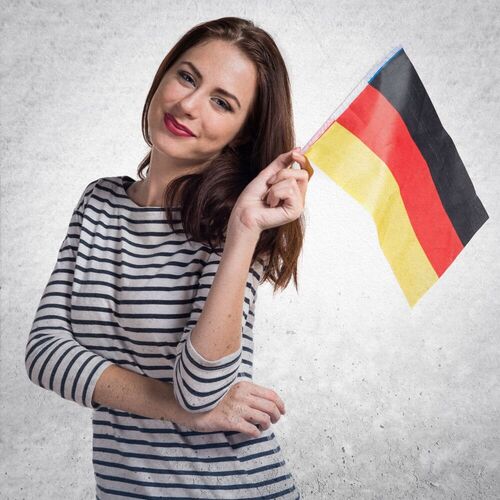Table of Contents
Introduction
Asking questions is a fundamental part of communication, and mastering this skill in German is essential for fluency. This comprehensive guide will teach you how to form German questions with and without question words. We’ll explore common and less common question words, sentence structures, and provide plenty of examples to help you understand and practice. Whether you’re a beginner or looking to polish your German grammar, this article has something for you.
Understanding German Question Words
German questions can be formed using question words or without them. Knowing the most common question words is the first step in constructing proper German questions.Common German Question Words
- wer – who
- was – what
- wann – when
- wo – where
- wie – how
- woher – where from
- wohin – where to
Forming Questions with Question Words
When forming a question with a question word, the structure is similar to a standard sentence. The question word is placed at the first position, followed by the conjugated verb in the second position.
Structure
Question Word + Verb + Subject + Object?Examples
- Wie geht es dir? (How are you?)
- Wer bist du? (Who are you?)
- Wo seid ihr? (Where are you?)
- Woher kommst du? (Where are you from?)
- Wohin gehst du? (Where are you going to?)
- Was ist das für ein Geruch? (What is this smell?)
- Wann gehst du nach Hause? (When are you going home?)
Forming Questions Without a Question Word
When no question word is used, the verb takes the first position in the sentence, followed by the subject.Structure
Verb + Subject + Object?Examples
- Gehst du nach Hause? (Are you going home?)
- Trinkst du gerne Tee? (Do you like to drink tea?)
- Spielst du gerne Schach? (Do you like to play chess?)
Using Modal Verbs in Questions

Modal verbs modify the main verb and are commonly used in questions to express ability, permission, or obligation.
Questions with Modal Verbs and Question Words
When a question word is used, the modal verb follows it in the second position, and the infinitive moves to the end of the sentence.
Structure
Question Word + Modal Verb + Subject + Object + Infinitive?Example
- Wie kann ich dir helfen? (How can I help you?)
Questions with Modal Verbs without Question Words
If no question word is used, the modal verb takes the first position, followed by the subject, and the main verb remains at the end.
Structure
Modal Verb + Subject + Object +Infinitive?Example
- Kann ich dir helfen? (Can I help you?)
Less Common Question Words
Beyond the basic question words, German uses several other interrogatives for more specific queries.List of Less Common Question Words
- Mit wem – with whom
- Wessen – whose
- Welch- (declined based on case and gender) – which
- Woran – about what
- Wie oft – how often
- Wie lange – how long
- Bis wann – until when
Examples
- Mit wem gehst du ins Kino? (With whom are you going to the cinema?)
- Wessen Auto ist das? (Whose car is that?)
- Welche Musik magst du? (Which music do you like?)
- Woran denkst du? (What are you thinking about?)
- Wie oft gehst du zum Yoga? (How often do you go to yoga?)
- Wie lange dauert der Unterricht? (How long does the lesson last?)
- Bis wann musst du arbeiten? (Until when do you have to work?)
Tips for Mastering German Questions
- Practice Regularly: Consistent practice helps solidify your understanding of question structures.
- Listen and Imitate: Listen to native speakers and try to imitate their intonation and phrasing.
- Use Flashcards: Create flashcards for different question words and practice forming sentences with them.
- Engage in Conversations: Practice asking and answering questions with a language partner or tutor.
- Learn Modal Verbs: Familiarize yourself with modal verbs to add depth to your questions.
Frequently Asked Questions
Why does the verb come before the subject in some German Questions?
In German, when a question is formed without a question word, the verb takes the first position, followed by the subject. This inversion emphasizes that a question is being asked.How do modal verbs affect Question Structure?
Modal verbs are placed in the position of the main verb. When used in questions, the modal verb comes after the question word (if there is one) and the main verb moves to the end of the sentence in its infinitive form.What is the difference between “wo,” “woher,” and “wohin”?
– Wo means “where” and asks about a location. – Woher means “where from” and asks about the origin. – Wohin means “where to” and asks about the destination.Are there any exceptions to the word order in German questions?
Generally, German questions follow strict word order rules.How can I practice forming German Questions?
Practice by writing down questions you might ask in daily life. Use different question words and structures. Additionally, engage in conversation with native speakers or use language learning apps that provide interactive exercises.

